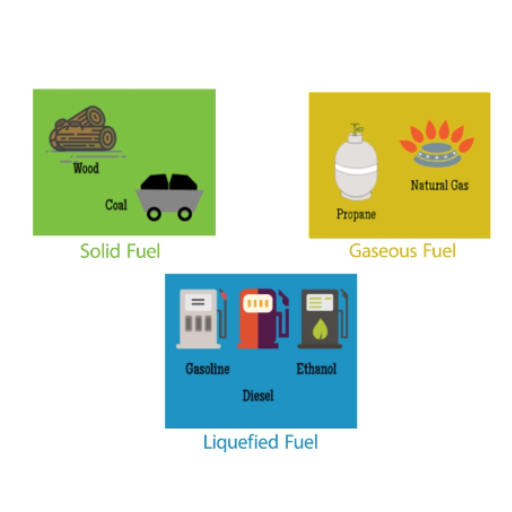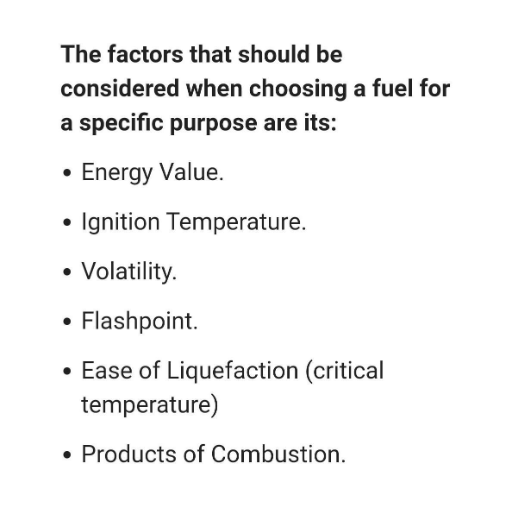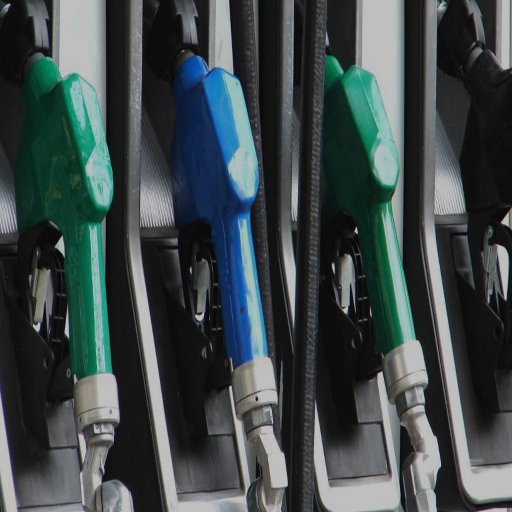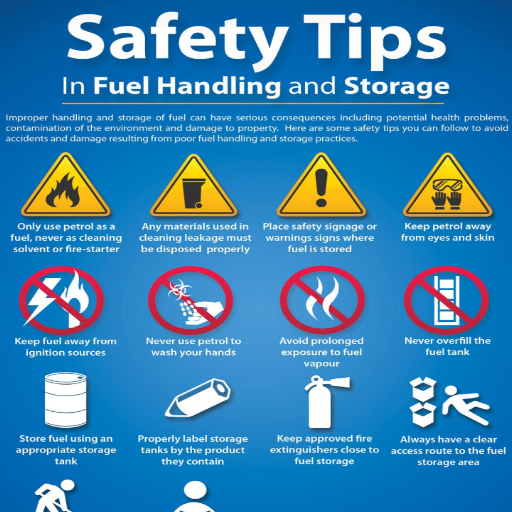When it comes to keeping your home or business powered during an outage, choosing the fuel type for your standby generator is a key decision. Fuel type impacts generator efficiency and reliability, has long-term cost implications, affects maintenance ease, and may also influence Indian environmental considerations. The wide variety of options, from diesel to natural gas to propane, makes it challenging for consumers to decide which fuel is best suited for their needs. This article serves as an ultimate guide, clarifying any confusion, assessing the pros and cons of each fuel type, and aiding in a well-informed choice that ensures your contentment when the unit is called upon.
Understanding Generator Fuel Types

Diesel
Diesel is one of the most popular types of fuel because of its efficiency and durability. Diesel engines require less maintenance and have a longer life. Diesel fuel also enjoys widespread availability, making it a reliable choice for both residential and commercial uses. However, it tends to have more emissions and can be pretty expensive over time.
Natural Gas
This fuel is clean-burning and cost-efficient. It’s practically a good fuel if you have a stable gas supply and certainly enjoys the environmental advantages more than any other fuel. However, in the case of portable generators, this is not feasible, as they need to be connected to a natural gas line.
Propane
Propane can be a more versatile and lighter environmental option for generators. This fuel has a long shelf life, making it suitable for sporadic use or emergency power. On the downside, it needs to be stored onsite in tanks, which occupy space and therefore add to costs.
Gasoline
Gasoline is readily available and is the most common fuel for portable generators. They are great for short-term use or emergencies. The downside is that gasoline will not last long; additionally, you must be very careful when storing it because it is highly flammable.
Considering the pros and cons of the mentioned fuel types, you could choose the one that best suits your needs and situation.
Overview of Common Fuel Options
Propane
Propane is a very clean-burning fuel with a variety of applications, a long shelf life, and lower emissions compared to gasoline. Propane is readily available and can be stored in pressurized tanks, making it a potentially feasible alternative for residential or small industrial uses. Propane is ideal for powering generators because it can be stored for an extended period, unlike gasoline, which has a shorter storage life. The environmental benefits of propane make it an attractive option for those seeking greener opportunities.
Diesel
Diesel is yet another commonly used fuel. It is highly efficient and reliable. It provides more energy output than any gas engine and therefore finds immense application in generating power for heavy-duty generators and commercial power requirements. It is less flammable when stored, enhancing its safety. Nevertheless, it produces more emissions, and regular maintenance is required to keep engines operating at peak efficiency.
Latest Trends in Fuel Preferences
Increasingly, attention is being paid to sustainable and efficient fuel options. Searches such as “propane vs. diesel for generators” and “clean energy fuel types” clearly indicate the growing eco-consciousness and cost awareness among consumers. Users actively compare the option of fuel to combine energy needs with long-term savings and environmental respect. By staying abreast of the latest trends and advances, one can genuinely make an informed choice that aligns with one’s value judgments and ever-changing energy technologies.
Natural Gas Generators
Natural gas generators have continued to emerge as a preferred choice for residential and commercial use, as they are efficient, dependable, and environmentally friendly energy sources compared to traditional fuel sources like diesel or gasoline. More often than not, the typical user asks whether natural gas generators are cheaper and more sustainable. The answer to that is yes, given the advantages. While fuel costs are generally more affordable for natural gas, this is especially true in areas with a well-developed pipeline network. It is more eco-friendly in that natural gas, in contrast to diesel, tends to emit fewer greenhouse gases and pollutants, as specified in environmentally friendly energy guidelines. Natural gas generators typically require less maintenance due to their cleaner combustion, making them a wiser long-term decision. As energy requirements evolve, natural gas generators have continued to gain a niche as a solution that offers good performance, sustainability, and cost optimization.
Diesel Generators and Their Benefits
Diesel generators remain a very popular and sought-after method of power generation in many businesses and industries. Their inherently rugged design allows these power plants to operate under arduous conditions, making them suitable solutions for both standby and continuous power demand. Here are five benefits of diesel generators:
- High Efficiency and Fuel Economy
Diesel engines are more efficient than their gas counterparts, so they need less fuel to generate the same amount of energy. This translates to cost savings and profit for long-duration use.
- Durability and Longevity
Diesel generators are engineered to operate under high pressures and extremely harsh conditions. Hence, they carry a reputation for delivering their services in very severe environments for an extended period.
- Low Maintenance Requirements
Diesel generators typically do not include components such as spark plugs or carburetors, resulting in fewer breakdowns and lower maintenance costs.
- Reliable Performance
Diesel engines provide consistent, uninterruptible power output, making them ideal for life-critical situations, such as hospitals, data centers, and industrial plants.
- Wide Availability of Diesel Fuel
Diesel fuel is extremely widely available worldwide, making it possible for the continuous operation of diesel generators even in remote areas where other energy sources may not be available.
These advantages justify why diesel generators continue to stand as a reliable power source in diverse situations.
Comprehensive Fuel Comparisons

Diesel vs. Gasoline Generators
A plethora of factors enter the comparisons of diesel and gasoline generators, from efficiency to cost and reliability. Historically, diesel generators have been regarded as durable and fuel-efficient, with a longevity that often exceeds that of their gasoline counterparts, due to their simplicity in maintenance and the robustness of their engines. Diesel generators consume less fuel to produce a larger power output, offering economic benefits over the long term. Alternatively, one can consider gasoline generators as a worthwhile investment, as they still suffice for lighter, short-term applications. However, a downside to storing gasoline generators is that, because they consume more fuel and require more frequent maintenance, this can lead to increased maintenance costs in the future.
Environmental Considerations
Diesel and gasoline generators also differ in terms of their environmental impact. Diesel engines emit fewer carbon monoxide emissions than gasoline, but they are higher in particulate matter and nitrogen oxides, which contribute to air pollution. Engine technology improvements and cleaner fuel options, such as low-sulfur diesel, help alleviate these effects. However, on the overall emissions scale, gasoline generators are favored by users concerned about their environmental footprint.
To compare these options, one must weigh the cost, durability, efficiency, and environmental impact, with diesel generators often being the government’s preferred choice for long-term, high-demand applications.
Natural Gas vs. Propane
Natural gas is cheaper and more convenient for continuous supply, while propane is more energy-dense, portable, and environmentally friendly.
|
Parameter |
Natural Gas |
Propane |
|---|---|---|
|
Cost |
Lower per unit |
Higher per unit |
|
Energy |
Less dense |
More dense |
|
Delivery |
Pipeline |
Tank delivery |
|
Storage |
Compressed or uncompressed |
Pressurized tanks |
|
Eco-Impact |
Higher methane emissions |
Cleaner burning |
|
Applications |
Continuous supply |
Portable, off-grid |
Diesel Fuel vs. Gasoline Generators
Diesel generators are fuel-efficient, durable, and suitable for heavy-duty use, while gasoline generators are affordable, portable, and ideal for short-term applications.
| Parameter | Diesel Generator | Gasoline Generator |
|---|---|---|
|
Cost |
Higher upfront |
Lower upfront |
|
Fuel |
Efficient, less volatile |
Less efficient, volatile |
|
Lifespan |
Longer |
Shorter |
|
Maintenance |
Less frequent |
More frequent |
|
Noise |
Louder |
Quieter |
|
Portability |
Heavier |
Lighter |
|
Applications |
Heavy-duty, industrial |
Residential, portable |
Cost Analysis of Each Fuel Type
When analyzing the cost of each fuel type, we must consider both fuel costs and maintenance costs, as well as the efficiency of each. According to the latest data, diesel is regarded as one of the most cost-effective options for high-demand, long-term operations, as it consumes less fuel per kilowatt-hour due to its higher efficiency. However, on the other hand, diesel generators often have high upfront costs, and their maintenance costs can also be substantial if anything goes wrong, particularly if the system wears out.
Such generators, gasoline ones, usually have a relatively low initial price, allowing them to be used for intermittent, limited cases. However, these price changes in gasoline, along with higher fuel consumption, will have other adverse effects on operational costs.
With natural gas, a stable price is set, and a steady supply is also ensured, particularly in urban areas where the infrastructure is relatively well-developed. In most cases, the use of propane is more expensive than the use of natural gas; however, propane has the advantage of a long shelf life and is thus an excellent fit for remote locations where natural gas pipelines are not available.
Ultimately, the most cost-effective type of fuel depends heavily on usage duration, power demand, and the availability of fuel supply. Being able to weigh short-term feasibility against long-term sustainability will make the cause a more attractive option.
Key Factors to Consider When Choosing Fuel

- Fuel Availability – Ensure that, wherever you are, your preferred fuel type is readily available, especially when considering sustained use or remote areas.
- Cost – Analyze the initial cost and the sustaining cost, that is, the charge for fuel itself, the charge for storing, and the charge for transshipment.
- Efficiency – Consider fuel conversion efficiency into heat and the conversion efficiency from heat acquired into performance, thereby minimizing energy waste.
- Environmental Impact – By the way, if pollution or carbon footprint matters to you, then think sustainability.
- Storage and Safety – Ensure that storage and safety procedures emphasize proper handling and minimize the risk of accidents.
Cost and Availability
Influenced by market demand, geopolitics, and supply levels, the cost and availability are crucial. The latest data indicate fluctuations in fuel prices, driven by the unwinding of supply chains and energy policies. Thus, according to the latest analysis, while renewables such as solar and wind are becoming increasingly cost-competitive, economic and political volatility continues to drive chaos in fossil fuel prices. Furthermore, in urban areas, sustainable energy alternatives are beginning to show improvement due to technological upgrades and government support. Thus, in the present-day landscape, where energy is so dynamic, understanding the twin concepts of cost trend and availability is crucial in fuel decision-making.
Efficiency and Performance
Energy efficiency and output are the primary criteria considered when selecting energy sources and their applications. Solar panels and wind turbines have undergone gentle improvements in efficiency over the last decade. New-generation PV solar panels now boast up to 22% conversion efficiency, enabling them to convert sunlight into power for wind turbines through technical advancements in energy generation at low wind speeds. These developments further enhance the viability of renewable energy systems, making such energy more usable and practical for widespread adoption. By being familiar with these upgrades, individuals and businesses are better positioned to either save or make effective use of energy, which aligns with the ultimate goal of a better, more sustainable future.
Environmental Impact and Regulations
Switching to renewable energy minimizes greenhouse gas emissions, builds the fight against climate change, and also improves air quality. With solar and wind projects having reduced their carbon footprints by 30% over the last decade, we can attribute this to the advancement of energy-efficient technologies and improved manufacturing practices. Yet, all these developments stir up a slew of regulatory issues. Governments worldwide are implementing stringent regulations and incentives to promote the use of renewable energy while maintaining environmental safeguards. For example, by offering carbon credits or similar incentives such as tax deductions and subsidies, these programs aim to expedite the conversion. Establishing an equilibrium between technology and regulations is crucial for achieving the optimal environmental impact while promoting sustainable growth.
2024 Trends & Innovations in Generator Fuel

Cleaner Fuel Alternatives
The transition to cleaner fuel alternatives for generators is a defining characteristic of 2024. Hydrocarbon-based fuels used in their traditional form emit greenhouse gases into the atmosphere; however, lesser emissions may arise from the purchase of biodiesel, renewable diesel, and hydrogen. Advances in production technology and government incentives have contributed to an increasing supply of these fuels.
Hybrid Generator Systems
Hybrid generator systems merging conventional fuels with renewable energy have been evolving. These systems enhance efficiencies, lower fuel consumption, and sidestep emissions in the name of sustainability.
Improved Fuel Efficiency
The last decade has also seen innovation in the fuel efficiency of generators. Various manufacturers have considered fuel-efficient innovative technologies that enable real-time monitoring of service, adjustments for fuel usage, and cost reduction, which benefits our world.
Regulatory Compliance
Stricter environmental regulations are shaping the landscape of generator fuels. Businesses must adapt to new emissions standards, further driving the need for cleaner and more sustainable fuel solutions.
Emerging Technologies in Fuel Supply
The fuel supply sector is undergoing significant transformations aimed at enhancing efficiency and promoting environmental sustainability. One of the essential technologies now entering fuel distribution networks is AI and machine learning. These systems are utilized to optimize the supply chain by forecasting demand, eliminating inefficiencies in transport, and profiting from waste reduction. Furthermore, blockchain technology is being applied, providing fuel supply chains with transparency and traceability so that the transactions and the origin of the fuel can be independently verified.
The development of synthetic fuels and biofuels is subsequent. Such alternatives, prepared from renewable sources or through advanced chemical methods, emit fewer greenhouse gases compared to fossil fuels. The final steps in realizing hydrogen fuel technologies involve developing methods for generating green hydrogen using renewable energy through processes such as electrolysis.
These emergent technologies, combined with data-driven insights, clearly point toward the evolution of bright, clean, and reliable fuel supply systems.
Multi-Fuel Systems Explained
Multi-fuel systems comprise advanced energy solutions engineered to operate with multiple types of fuel, thereby providing greater versatility and reliability in power generation or transportation. Such systems can switch between fuels, such as natural gas, hydrogen, biodiesel, or even conventional fuels, depending on their availability, cost, or the nature of environmental concerns. This versatility enables their considerable attraction in industries such as power generation and heavy transportation, as the world transitions toward sustainable energy solutions.
The renewed interest in these systems has gained momentum due to their potential to achieve diversification in energy and, by extension, de-emphasize the reliance on any single source of fuel. They thus provide a safeguard against disruptions in the supply chain, offering a reliable guarantee that operations will remain unaffected, regardless of fluctuating market conditions. By blending renewable fuels with conventional fuels, multi-fuel systems are truly taking a significant leap forward in addressing the dual issues of economic feasibility and environmental consciousness. The ever-increasing attractiveness of multi-fuel configurations is supported by one very telling trend: the need for innovative energies to meet the urgent demands of cleaner and more flexible energy systems.
Future of Generator Fuels
Recent developments and trends attest that life after today for generator fuels will revolve around sustainability, flexibility, and efficiency. Hybrid systems incorporating renewable energy sources, such as hydrogen, biodiesel, and biogas, are being increasingly emphasized. According to the latest search trends, reports, and market developments, hydrogen fuel cells are gaining immense momentum as an alternative for clean and highly efficient use, with significant investments being made in the infrastructure needed to deploy them on a mass scale. Another way to reduce greenhouse gases while staying compatible with existing generator technologies is to produce synthetic fuels from carbon capture and renewable energy sources.
Battery storage developments are also changing fuel utilization in generator systems; in many designs, attention is being given to coupling energy storage to maximize reliability and eventually reduce dependence on fossil fuels. The integration of renewable energy, novel fuels, and high-storage systems positions future generators to squarely confront two key challenges: meeting the energy demands of an increasingly energy-hungry world and responding to the global demand for lower carbon footprints.
Expert Recommendations for Fuel Selection

The following considerations become paramount while choosing fuel for generator systems:
- Energy Efficiency – Select a fuel that yields a high energy output per unit, thereby minimizing waste.
- Environmental Impact – Choose fuels with lower carbon emissions and fewer pollutants, taking into account sustainability concerns.
- Cost and Availability – The fuel must be assessed in terms of its cost-effectiveness and long-term availability.
- System Compatibility – Does the fuel agree with present-day or proposed generator technologies?
- Safety – Investigate the safety aspects of fuel storage, transportation, and usage.
Renewable alternatives are currently recommended for biodiesel, hydrogen, and natural gas due to their efficiency and minimal environmental impact. It all depends on the weight each decision assigns to the question of performance versus that of sustainability.
Insights from Industry Professionals
- Biodiesel Adoption Trends
Industry experts note that the adoption of biodiesel has grown by 25% over the past decade, driven by its compatibility with existing diesel engines and lower carbon emissions. Furthermore, being biodegradable, biodiesel is safer to store and transport.
- Hydrogen as a Future Fuel
Hydrogen is on its way to becoming an attractive fuel source, with reports indicating that 30% of energy companies are currently developing hydrogen infrastructure. With a high energy output and zero emission profile, it would increase environmental impacts if it were anything less than this.
- Natural Gas Efficiency
Experts note that the efficiency of natural gas generators ranges from 45% to 50%, which is significantly better than that of some conventional counterparts. This fuel source is said to be relatively cheap and less polluting than coal or petroleum-based fuels.
- Safety Innovations in Fuel Storage
Specialists state that recent improvements in fuel storage technologies, such as reinforced containment systems, have reduced the leakage risk by 40%. In this way, they have helped make high-risk fuels such as hydrogen and liquefied natural gas safer.
- Hybrid Fuel Solutions
Experts foresee an increasing trend toward hybrid systems that combine renewable options, such as biodiesel and hydrogen, with conventional fuels. Thus, this type of system can achieve a 15% increase in reliability while optimizing resource utilization in support of sustainable energy solutions.
Choosing the Right Fuel for Your Generator
More than anything else, I consider efficiency, availability, and the environmental impact when choosing the right fuel for my generator. For instance, diesel is a more reliable choice and is widely available; however, it produces more emissions compared to natural gas or biodiesel. If I opt for sustainability, I might consider hybrid fuel solutions, which combine renewable options with traditional fuels. Here, performance, cost, and environmental friendliness must be kept balanced, for choosing the wrong one may not suit my needs.
Safety and Storage Guidelines for Fuel Handling

- Store fuels in approved containers – Use sturdy, clearly marked containers that are certified for fuel storage to prevent leaks and spills.
- Keep fuel away from ignition sources – Store fuels in a manner that ensures vapors will not come into contact with heat sources, sparks, open flames, or electrical devices that could ignite them.
- Avoid overfilling containers – Allow space inside the containers for expansion of the fuel and to lessen potential spill hazards or vapor release.
- Ensure proper ventilation – Store fuels in well-ventilated areas to prevent the build-up of hazardous fumes.
- Follow local regulations – Observing and applying the rules about storage and handling laid down by local laws or standards should be a priority for safety and compliance.
- Regularly inspect storage areas – Containers and storage places should be periodically checked for damage, leaks, or corrosion.
- Keep fuels out of reach of children and pets – Ensure storage places are secure and inaccessible to unauthorized individuals.
Correct handling and storage of fuel are paramount to safety and to reducing environmental hazards. Always work with caution whenever dealing with flammable materials.
Best Practices for Fuel Storage
Integrating the latest information and trends ensures safer and more efficient fuel storage. According to current recommendations, here are some other suggestions:
- Store fuel in certified containers – Containers should be designed and approved for fuel storage by government or industrial standards, minimizing leaks and evaporation.
- Label all storage properly – Proper labeling that clearly states the type of fuel and its quantity helps prevent mishandling of the fuel or its accidental misuse, especially in emergencies.
- Avoid long-term storage when possible – Most fuels have a short shelf life; gasoline, for example, can degrade in as little as 3 to 6 months without treatment. Fuel stabilizers can be used when storing fuel for extended periods.
- Keep containers away from direct sunlight – Prolonged exposure to sunlight increases vapor pressure and container temperature, posing a danger of leaks or even explosions.
- Maintain adequate ventilation – With proper air circulation, the concentration of harmful vapors is reduced, thus making the area safer.
- Stay updated with local regulations – It is essential to stay informed about state or regional requirements regarding fuel storage to ensure compliance with the evolving safety mandates.
By staying informed about these best practices, the hazards associated with fuel storage are significantly reduced, enabling safe handling even at the domestic level.
Safety Measures for Handling Different Fuels
Depending on the type and amount of fuel, various safety measures may need to be implemented to prevent accidents, pollution, or health hazards. Hereunder, one finds the central safety tips for common fuel types:
- Gasoline – Extremely highly flammable, gasoline must always be stored in approved containers away from any possible heat source or open flame. Additionally, storage areas should be well-ventilated to minimize vapor concentration, and tanks should never be filled to the top to mitigate the danger of spilling. According to reports, improper gasoline storage is a leading cause of household fire incidents; therefore, it is essential to remain vigilant.
- Diesel – It is slightly less flammable than gasoline; hence, it may be treated with a little more laxity, but still with utmost care—store in suitable containers with labels, away from direct sunlight, to prevent degradation. Any spilled diesel must be cleaned up immediately to avoid harm to aquatic life and soil pollution.
- Propane – Propane storage tanks should be placed in a cool, well-ventilated area. These tanks should never be kept inside the house or near heat sources. Because propane accumulations caused by leaks can trigger explosions, it is essential to conduct regular leak inspections.
- Kerosene – Store kerosene in blue-designated containers to prevent confusion with gasoline or other fuels. It should be kept in a cool, dry place, away from living areas. The latest studies emphasize the need for ventilating these areas when kerosene heaters are in use to avoid carbon monoxide hazards.
It is generally good practice to stay informed about new regulations and data, such as those from reputable sources like governmental safety agencies or other recognized organizations, which are often aimed at promoting safe fuel handling procedures. Adequate training, appropriate equipment, and adherence to rules can substantially reduce the hazardous effects of improper fuel handling.
Reference Sources
-
University of Nebraska Medical Center (unmc.edu)
Standby Generator Maintenance
This document discusses the suitability of propane, natural gas, and diesel as fuel sources for standby generators. -
Alaska Energy Gateway (akenergygateway.alaska.edu)
Diesel Generator Fuel Consumption Under Dynamic Loading
This paper provides insights into diesel fuel efficiency and its application in generators. -
Pacific Northwest National Laboratory (pnnl.gov)
Best Practices for Standby Generator Operations and Maintenance
This resource outlines the standard fuel options for standby generators, including diesel, natural gas, gasoline, and propane.
Frequently Asked Questions (FAQs)
Q: What is the best fuel source for a standby generator?
A: The best fuel source for a standby generator depends on your specific needs and preferences. Standard options include gasoline, diesel, propane, and natural gas. Each fuel type has its advantages and disadvantages, such as storage requirements, availability, and cost.
Q: How do I select the most suitable fuel type for my backup generator?
A: When selecting a fuel type for your backup generator, consider factors such as availability, storage capacity, cost, and the duration of expected power outages. Propane and natural gas are often preferred for their ease of use and long-term storage capabilities, whereas gasoline and diesel may be more readily available at local gas stations.
Q: What are the advantages of a tri-fuel generator?
A: A tri-fuel generator can run on gasoline, propane, and natural gas, providing flexibility and convenience. This type of generator enables you to select the most suitable fuel source based on availability and cost, ensuring you have backup power during a power outage.
Q: Are propane generators better than gasoline-powered generators?
A: Propane generators generally offer cleaner-burning fuel compared to gasoline-powered generators, leading to less pollution and longer engine life. Additionally, propane can be stored indefinitely without degradation, making it a reliable choice for standby power.
Q: What factors should I consider when purchasing a generator?
A: When purchasing a generator, consider the following factors: the generator size based on your power needs, the type of fuel it uses, the cost of fuel in your area, and the ease of maintenance. It’s also essential to assess how often you might experience power outages and the fuel storage options available to you.
Q: How do generators provide backup power during an outage?
A: Generators provide backup power by converting fuel into electricity. When the primary power source goes out, the generator automatically starts and supplies electricity to essential appliances, ensuring you remain powered during a power outage.
Q: What are the fuel requirements for diesel generators?
A: Diesel generators require diesel fuel, which is widely available and can be stored for long periods without degrading. However, diesel fuel does have specific storage and maintenance requirements to ensure optimal performance and safety.
Q: Can I use natural gas or propane for my standby generator?
A: Yes, many standby generators are designed to run on either natural gas or propane. Choosing between the two often depends on your local gas supply and whether you have a propane tank available for storage. Both options have their benefits in terms of efficiency and convenience.
Q: What are the common fuel types for generators?
A: Common fuel types for generators include gasoline, diesel, propane, and natural gas. Each fuel type has unique characteristics that may make it more suitable for specific applications, so it’s essential to evaluate your needs when selecting the right generator fuel.
